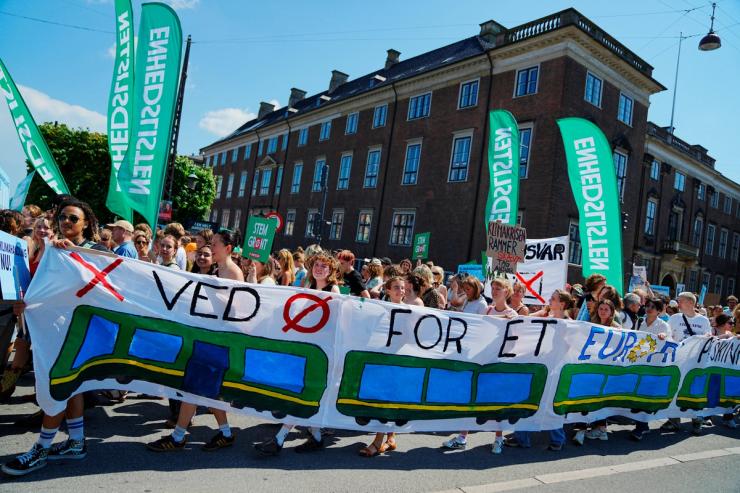
Semafor Signals
China, Russia, and environmental advocates brace for EU elections impact
Insights from France 24, The Guardian, and Politico EU

The News
Dutch voters went to the polls to begin the four-day European Parliament elections on Thursday, a vote that will take place across 27 nations and have vast implications for not only the European Union’s approach to domestic policy, but also its relation to the rest of the world.
The continent’s trajectory related to China, Russia, and global climate goals are at stake.
SIGNALS
Russia could prove far-right’s ‘achilles heel’
EU officials are on high alert over online Russian disinformation campaigns surrounding the election, setting up a rapid alert system to combat false narratives. Russia’s online tactics are not new, but they’ve become more sophisticated, CNN wrote, and are seeping into parliamentary and public discourse, given that the Ukraine war is a campaign issue. Far-right and Eurosceptic parties, surging in the polls, are seen as more Russia-friendly — some have even been accused of accepting money from pro-Russia networks. “Across Europe … Ukraine has become a dividing line in these elections,” The Guardian’s diplomatic editor wrote, and centrist leaders are exploiting that “in the hope that it will prove the populists’ achilles heel.”
China remains on alert for EU trade war
Manifestos of the EU’s various political parties show that if the coalitions stay intact they could likely “retain the current confrontational approach,” to China, a scholar from the China Observers in Central and Eastern Europe consortium wrote. However, gains on the far left or right could be more advantageous for China. The EU imposing duties on Chinese electric cars could trigger a “tit-for-tat trade war,” Politico reported, and Beijing is taking a carrot and stick approach to stop the bloc. European Commission President Ursula von der Leyen has suggested she would possibly diverge from the US when it comes to tariffs against China, saying that the EU has a “a much more tailored approach” that relies on investigations into state subsidies.
Polls show that EU’s elections could showcase a ‘greenlash’
European farmer protests this year over rising costs and proposed environmental reforms have sparked fears of a “greenlash” in the parliamentary elections. Polls show that parties making up the Greens/European Free Alliance could lose as much as 30% of their seats, potentially impacting how the EU’s Green Deal, which aims to make the continent carbon-neutral by 2050, is implemented, the BBC reported. But a ‘greenlash’ might be a stretch, according to environmental journalist Ajit Niranjan, who argued that the Green Party is only losing votes because in a weak economy, the environment is seen as a “luxury goods issue.” More parties’ platforms have incorporated ambitious climate targets, so it does not mean “fast climate action will be axed.”
